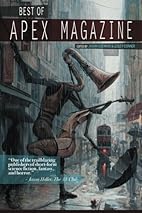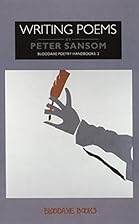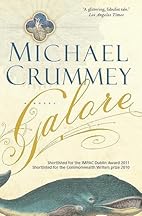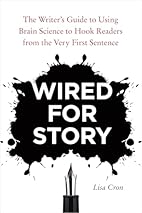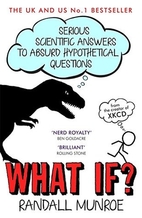Toby Litt is best-known for writing his books – from Adventures in Capitalism to (so far) Life-Like – in alphabetical order; he is currently working on P.
 (Toby Litt at Bristol Festival of Literature. Photo courtesy of Paul Bullivant)
(Toby Litt at Bristol Festival of Literature. Photo courtesy of Paul Bullivant)
Why did you choose to call your collection of essays Mutants?
I was thinking of calling it Mutoid Attack!!! That was the name of a game me and my gang used to play, when we were about nine or ten years old.
The real reason is that I was asked to write something about Carlos Labbé, a Chilean writer. This was for Granta online. It was one of those occasions where a little commission, a few hundred words, forced me to formalize something that had been inchoate for a long while. I was very direct in my language.
“I like fiction that seems to reinvent itself as it goes along—to change not only its rules but also the premises on which those rules are based. This is a fiction that goes beyond metamorphosis and becomes, instead, a kind of seething, perpetual mutation. It doesn’t start from a state of generic-genetic purity; it was hybrid to begin with. Each stage of its development is one of mutation from mutation, outgrowth from outgrowth. And yet, when it reaches an end, dies or slides off out of sight towards further incarnations, it is possible to discern that this creature-of-literature had a consistent form—and an indwelling set of premises that weren’t discernible before.”
Afterwards, I realized this explained a lot about the kind of writing that I see myself as doing, and why it doesn’t always meet with comprehension.
Do you have a set writing process, if so what is it? Is process important?
The simplest answer is no. There are certain things I return to repeatedly – certain kinds of notebook for instance – but that’s because they’re the best ones I’ve found; if I found better, I’d switch. I am superstitious, but the means I use to write change with each book. However, I don’t like to think of it as ‘process’. Although I teach writing, and have explanations for lots of technical aspects of prose-making, the moments when it goes well are very mysterious.
Where do you stand on the axiom "write every day"? (& please explain why)
I stand here: If you have to force yourself to write, you’re not (my kind of) writer; if you have to force yourself not to write, I greet you as a fellow shirker of life. Whenever I can sneak off to work, you will not find me with other people. This causes problems frequently.
Do you prefer the long or short form? How do you feel about Flash Fiction?
For some reason, perhaps because it’s what you can produce in half a day, I have settled to a story length of between 2,500 and 3,000 words. I would prefer these stories to be longer, but they seem to fit into around ten to twelve pages.
Flash Fiction doesn’t resonate with me. I will write something that’s a sentence long, but I’ll just think, ‘That’s all there is. Why isn’t there more? Because anything more would be crap.’ Usually, I don’t make an attempt to publish or circulate sentence-long things. They stay in the notebooks.
What did you learn about writing from writing comics?
That writing comics is hard. That comics are a much younger, freer form (in terms of using a consistent point of view) than novels or short stories. (This may seem a minor point, but I realized that novels and short stories are extremely rule-bound as far as point of view goes.) That it is useful for prose writers to think about writing on multiple levels simultaneously. That the masters of comics writing are masters of syncopation. That writers for comics are part of a Fordist production line where you do your bit, pass it on. That comics readers are some of the best, most passionate, most critical, that a writer could find.
And a similar question - what did you learn about writing by collaborating on an opera?
Ah, well, I think comics and opera libretti are very similar forms. BIG WRITING. With a comic, every reader has to hit each beat at the same time. A spread out revelation is a flubbed revelation. Look at Brian K. Vaughan’s writing for Saga. When he does a BOOM, everyone gets it. Similarly, with an opera, everyone in the auditorium should be at the same resonant frequency. It’s ‘If you have tears, prepare to shed them now.’ That’s my take on the libretto form: it’s the poetic triumph of the bloody obvious. “I am full of grief – I am anguished.” That would be terrible in a short story. Leave subtlety to the composer. Make your vowels singable and don’t car crash your consonants.
Which piece of your own writing are you most proud of? and why?
I have just submitted something new, and long, to an editor. Right now, I hate everything I’ve done, and wish I was another writer entirely. None of it has done anything that really seems important. Feeling like this is what happens between books. I am glad I wrote some of the lyrics that Emily Hall has set – ‘At the Edge of the Field’, ‘A Field of Snow’, ‘Waltz’. If you were to press me about prose, I’d say either the opening of Journey into Space, or all of deadkidsongs, or the story ‘The Hare’.
What are you going to do once you've reached the end of the alphabet (with book titles I mean - rather than any sort of existential word hoard crisis)
Word hoard is a wonderful image; Anglo-Saxon, no? That would make me a great Smaugesque dragon, sitting on top of the glistering pile, wanting more.
Answer: I have a plan. I have only told one person that plan. You are not that person.
Are you particularly influenced by any writers? If so who and why? If not why?
Many, many writers; constantly. At the moment, consciously, Osip Mandelstam – ‘Journey to Armenia’ and ‘Fourth Prose’; Claire-Louise Bennett, Pond. More generally, Henry James, Virginia Woolf, J.G.Ballard, David Foster Wallace, Franz Kafka, Muriel Spark, Samuel Beckett.
I read what they do and see how intensely other it can be. Because they have reached the point of perceiving a world that isn’t common. They mutate language in a way that’s enviable, necessary, and sets me off to try again.
But I’m also equally influenced by musicians and visual artists.
In one sentence what is your best piece of advice for new writers?
Enjoy being a new writer; value energy over expertise – don’t be reasonable.
You must be a mutant.
